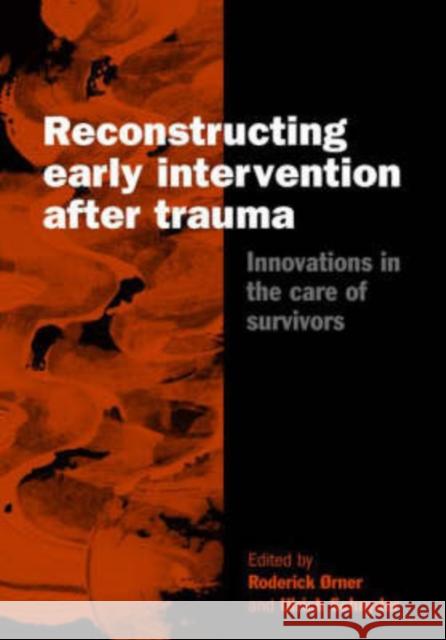Reconstructing Early Intervention after Trauma : Innovations in the Care of Survivors » książka
Reconstructing Early Intervention after Trauma : Innovations in the Care of Survivors
ISBN-13: 9780198508342 / Angielski / Miękka / 2003 / 304 str.
The introduction of a diagnosis of Post Traumatic Stress Disorder in the 1980 edition of the American Psychiatric Association's Diagnostic and Statistical Manual for Mental Disorders heralded the dawn of modern psychotraumatology. On the strength of the conceptual refinements offered by this new diagnosis, much consideration has been given to the challenge of effecting early intervention after trauma. To do so offered the prospect of preventing initial reactions developing into a debilitating chronic disorder with comlicating co-morbidities. Some of the original proponents of early intervention protocols have continued to claim that such provision will mitigate the effects of traumatic events, prevent the onset of a traumatic stree syndrome, allow early detection of those who may require further help and help re-establish a homeostatic equilibrium. The evidence base for making these claims has never been made explicit. More recent clinical trials suggest a more qualified position ought to be taken with respect to what should reasonably and reliably claimed for early intervention techniques used to date. More alarming is the growth cluster of studies warning against certain types of intervention. The optimism which once prevailed with respect to what early intervention after trauma might achieve has, in recent years, been replaced by controversy and defensively entrenched posturing. This book aims to provide a comprehensive update on the accumulated experience in the field of early intervention after trauma and defines standards for service provision. It does so by reviewing the historical traditions and theoretical foundations for early interventions and links recommendations for psychological first aid to a substantial body of multidisciplinary evidence. The ultimate aim of this book is to reconstruct an informed evidence base for early intervention after trauma.











